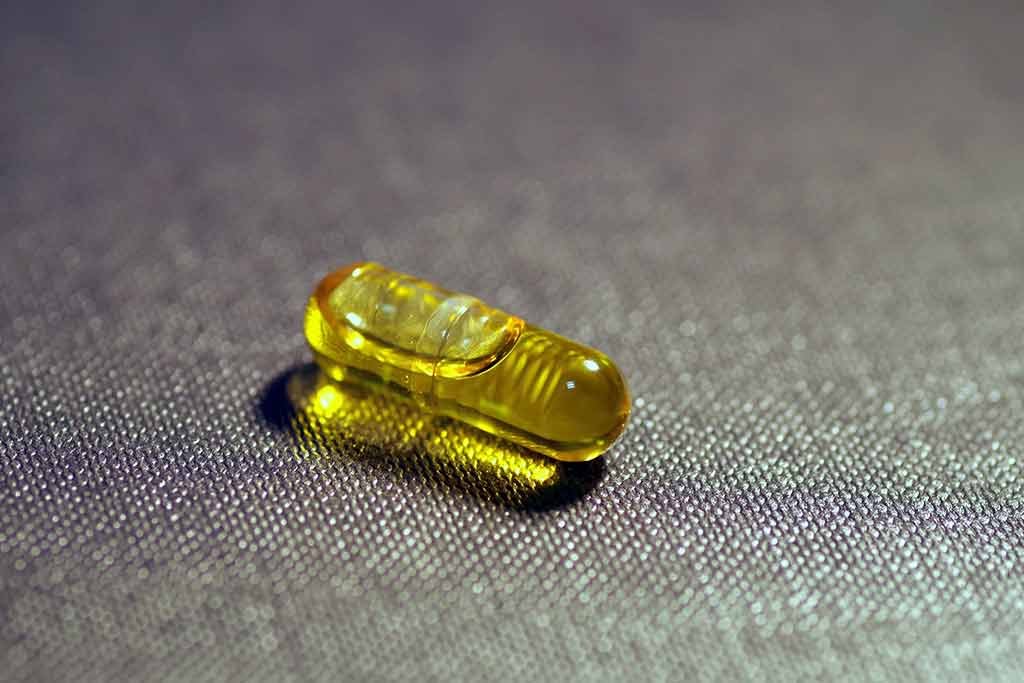Folic acid 'may help reduce stroke risk in people with high blood pressure'
Neurology

'Folic-acid supplements slash high blood pressure sufferers' risk of suffering a stroke by almost 75 per cent, new research suggests' the Mail Online reports
"Supplements can slash the risk of those with high blood pressure having a stroke by almost 75%," reports the Mail Online.
But the evidence presented in the study in question is not as strong as the news website reports.
Folic acid can reduce the level of an organic compound called homocysteine in the blood.
High levels of homocysteine are associated with the formation of blood clots seen in cardiovascular diseases like stroke.
The concern is that a blood clot can block the supply of blood to the brain, triggering a stroke.
The researchers were interested in finding out whether folic acid supplements could lower the risk of stroke.
They studied more than 10,000 older Chinese adults who had high blood pressure but had never had a stroke or heart attack.
The participants were all given a blood pressure-lowering medication, with or without folic acid, and followed up for 4 years.
When looking at a subgroup of participants believed to have a higher risk of stroke, 1.8% of people who took folic acid had a stroke compared with 5.6% who did not.
Participants were assessed as having a higher risk of stroke if they had higher levels of homocysteine in the blood and lower levels of platelets.
Among participants with a lower risk of stroke according to these factors, there was much less difference between those who took folic acid and those who did not.
However, it's not usual medical practice to assess someone's stroke risk on the basis of these blood levels.
This means it's uncertain how the findings of this study can be applied to stroke prevention, and we cannot conclude that folic acid supplements will prevent stroke.
In the UK, we also benefit from the addition of folic acid to various foods, such as bread, which may not be the case in China.
Proven methods of reducing your stroke risk include eating a healthy diet, exercising regularly, not smoking, and limiting the amount of alcohol you drink.
Where did the story come from?
The study was carried out by researchers in China and the US from a number of institutions, including Peking University First Hospital, Capital Medical University Beijing, Nanchang University, Guangdong Provincial Hospital of Chinese Medicine, Duke University and Johns Hopkins University.
It was funded by grants from the Chinese National Key Research and Development Programme, the National Natural Science Foundation of China, the Science and Technology Planning Project of Guangzhou, and the Science, Technology and Innovation Committee of Shenzhen.
It was published in the peer-reviewed Journal of the American College of Cardiology.
The Mail Online's article covered the content of the research well. But by focusing on the relative risk reduction of 75% in the headline, the article may give the impression that there's a more substantial reduction in risk than the study actually found.
The article also described previous research on ginkgo biloba supplements, which was not really relevant to this study.
What kind of research was this?
This randomised controlled trial (RCT) aimed to see whether high homocysteine levels and high platelet levels may increase the risk of stroke – and, if so, whether folic acid may reduce risk.
In cardiovascular disease, the build-up and breakdown of fatty clots causes damage to the blood vessel lining, and platelets repair this damage. The process is associated with high homocysteine levels.
The research is therefore built on the unusual idea that levels of platelets circulating in the blood are low in people with cardiovascular disease because they're being "used up". This idea is arguably unproven.
RCTs are the best way to check whether drug treatments work, as this type of study should balance out other health and lifestyle characteristics between participants.
This study had additional strengths in its large size and in that it was double-blinded.
Everyone received the same dose of a blood pressure-lowering drug, but half the group also received a dose of folic acid.
This supplement was combined with the blood pressure tablet, so people did not know whether they were taking it or not.
But looking only at a Chinese population who needed blood pressure medication means the findings may not be applicable to everyone.
Genetics or lifestyle factors may differ between people of different populations, and not all strokes are caused by high blood pressure.
Also, any benefit from folic acid may be less relevant to people in countries where it's already added to food like bread.
What did the research involve?
The study included 10,789 Chinese men and women aged 45 to 75 who had high blood pressure (hypertension) or were on blood pressure-lowering medication.
They were not allowed to take part if they had previously had a heart attack or stroke.
People were assessed at the start of the study in a number of ways, including a gene test to check for a variation that affects how folic acid is processed in the body.
They also had their levels of homocysteine and platelets tested.
People were randomised to receive a daily tablet of either a blood pressure-lowering tablet called enalapril, or a tablet containing both enalapril and folic acid.
They were also allowed to take other types of blood pressure-lowering tablets if their doctors had told them to, but were not allowed to take vitamin B supplements, as folic acid is a B vitamin.
Average follow-up was 4 years, and the main outcome of interest was a first stroke caused by a blood clot or internal bleeding from one of the arteries that supply blood to the brain.
What were the basic results?
The researchers reported the results according to the participants' risk of having a stroke at the start of the study:
- In their highest risk group (high homocysteine, low platelets), 1.8% of people taking folic acid had a stroke, compared with 5.6% not taking folic acid.
- In the lowest risk group (low homocysteine, high platelets), 3.0% of people taking folic acid had a stroke, compared with 3.3% not taking it.
- In the medium risk groups, people with high homocysteine but high platelets had a 4.1% risk of having a stroke with folic acid versus 4.7% without. For people with low homocysteine but low platelets, the difference was greater at 1.9% with folic acid versus 4.2% without.
When these results were analysed by cause of stroke – due to a clot or bleed – these differences were only seen for strokes caused by a clot.
How did the researchers interpret the results?
The researchers noted that in countries like China, the rates of stroke are increasing.
They therefore suggested that successfully identifying people who had the highest risk was important, and that giving these people folic acid could have great public health benefits.
They also pointed out that folic acid supplements were simple, safe and inexpensive, which also affects how easily they could have a positive impact on the health of a population.
Conclusion
This was a well-designed study that looked at a large number of people. But it's uncertain how its findings apply to stroke prevention and care in the UK.
The starting premise of the study is rather unusual. It's built on the idea that people who have cardiovascular disease and a tendency to get blood clots have lower circulating levels of blood platelets, and higher homocysteine levels.
It's not usual medical practice to assess someone's cardiovascular risk based on these blood levels.
This was also a specific population of Chinese people who needed to take blood pressure-lowering medication. High blood pressure is not the only risk factor for stroke.
When combined with the potential genetic and lifestyle differences of this population, it's uncertain how applicable these results would be to all people with a variable underlying risk of stroke.
This means there's not good evidence at this stage that people could reduce their risk of stroke by taking folic acid.
While this is an area worthy of further research, the best known ways to reduce your risk of stroke are to avoid smoking, aim for a healthy weight through regular exercise and a healthy, balanced diet, and to limit how much alcohol you drink.
If you do choose to take supplements, they should not be taken instead of any medication you may have been prescribed by your doctor.
They can be taken alongside your medication, but only if the supplement does not interfere with it. If in doubt, speak to your GP or a pharmacist.






 Subscribe
Subscribe Ask the doctor
Ask the doctor Rate this article
Rate this article Find products
Find products








